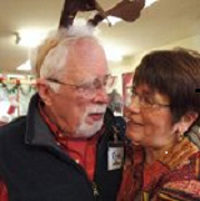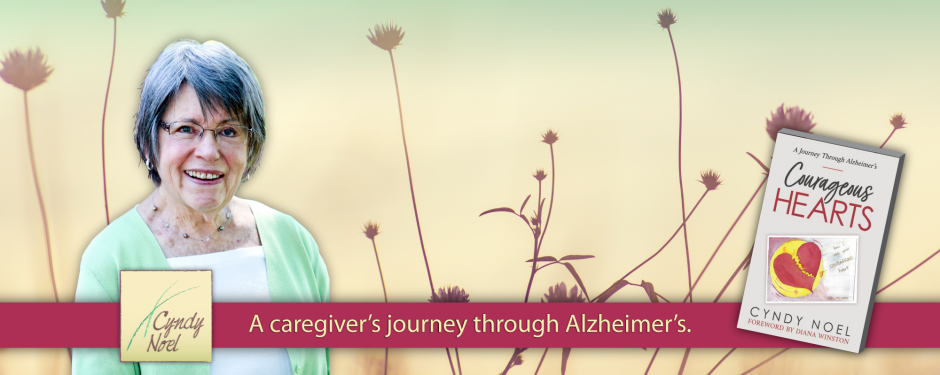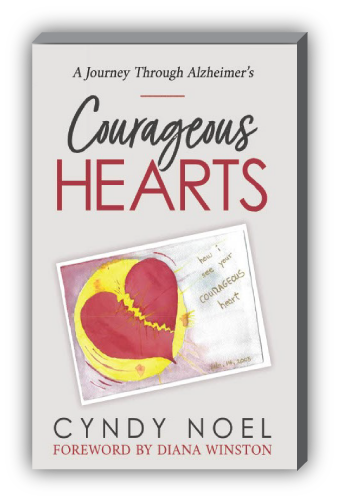I was not familiar with Alzheimer’s. I had never known anyone who had it. But the challenging behaviors and memory issues that were starting to occur with Ron, eventually became impossible to ignore. Despite me being in denial and wanting to pretend it wasn’t happening, I finally saw that I needed to do something. I sought help and learned more about the disease and it was ultimately determined that Ron had Alzheimer’s.
Below, I have described some of my experiences from those early years.

- I saw behaviors in Ron that I couldn’t understand. He missed appointments, wasn’t paying his bills, got lost while driving, and had difficulty with conversations. Yet sometimes he seemed normal.
- Suddenly life as I had known it felt like it was falling apart. I had never experienced as many feelings as I did during that time. I felt scared, alone, angry, uncertain, sad. I also felt that I could no longer trust myself because I was unfamiliar with what was happening and didn’t know what to do.
- I discovered that Alzheimer’s can be difficult to diagnose. Though Ron was seen by a local aging center, a geriatric psychiatrist, a neuropsychologist, and a neurologist, he managed to perform well on the tests and there never was a definitive diagnosis. It took me a while to realize that was not unusual. But the most difficult thing for me to understand was that they can’t fix Alzheimer’s.
- I was the one who had to change. I’ll always remember the morning when I had that sudden insight. It was challenging to accept this new reality and to finally understand that Ron was unable to do that.
- I learned to reach out to others. I discovered the local Area Agency on Aging. I connected with the Alzheimer’s Association where I was able to take classes, read the articles on their website, and join a support group. I also got help in caring for him, especially in the early stages when I was still working.
- I had to care for myself. I learned about the importance of caring for myself. In the classes I was taking, it was likened to putting our oxygen mask on first when flying, so we can be there to help those around us.
- I discovered the value in learning to change my perspective. It was hard to continually let go of “normal” and live with “uncertainty”, but I got to practice doing that over and over.
- I couldn’t worry what others were thinking. I saw myself being embarrassed when we were in public at times. That was apparent when I had to take him to the ladies’ room with me so he wouldn’t wander off; when I cancelled his order for beer the day we went out to lunch; when I had to apologize to others for what he said to them; etc.
- The challenges were constant. While caring for Ron I was continually challenged whether physically, emotionally, or in my ability to understand. At first, I was in denial, then I realized that I had to learn how to adapt and make the best choices I could, over and over again, as it changed from day to day.
- Grieving is a process. We lose the person we knew before Alzheimer’s. Then they change and we lose that person. This continues over and over until they eventually take their last breath.

